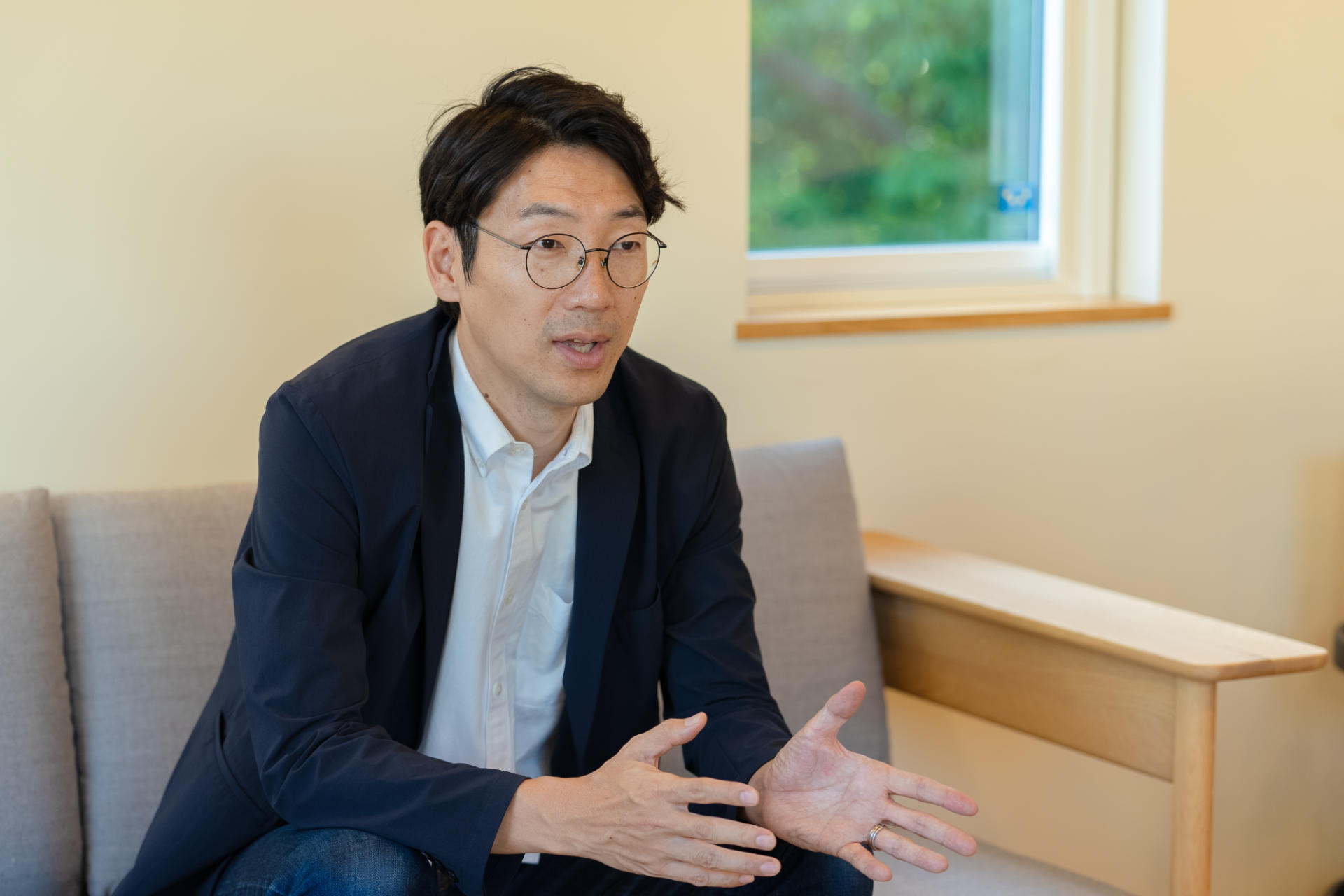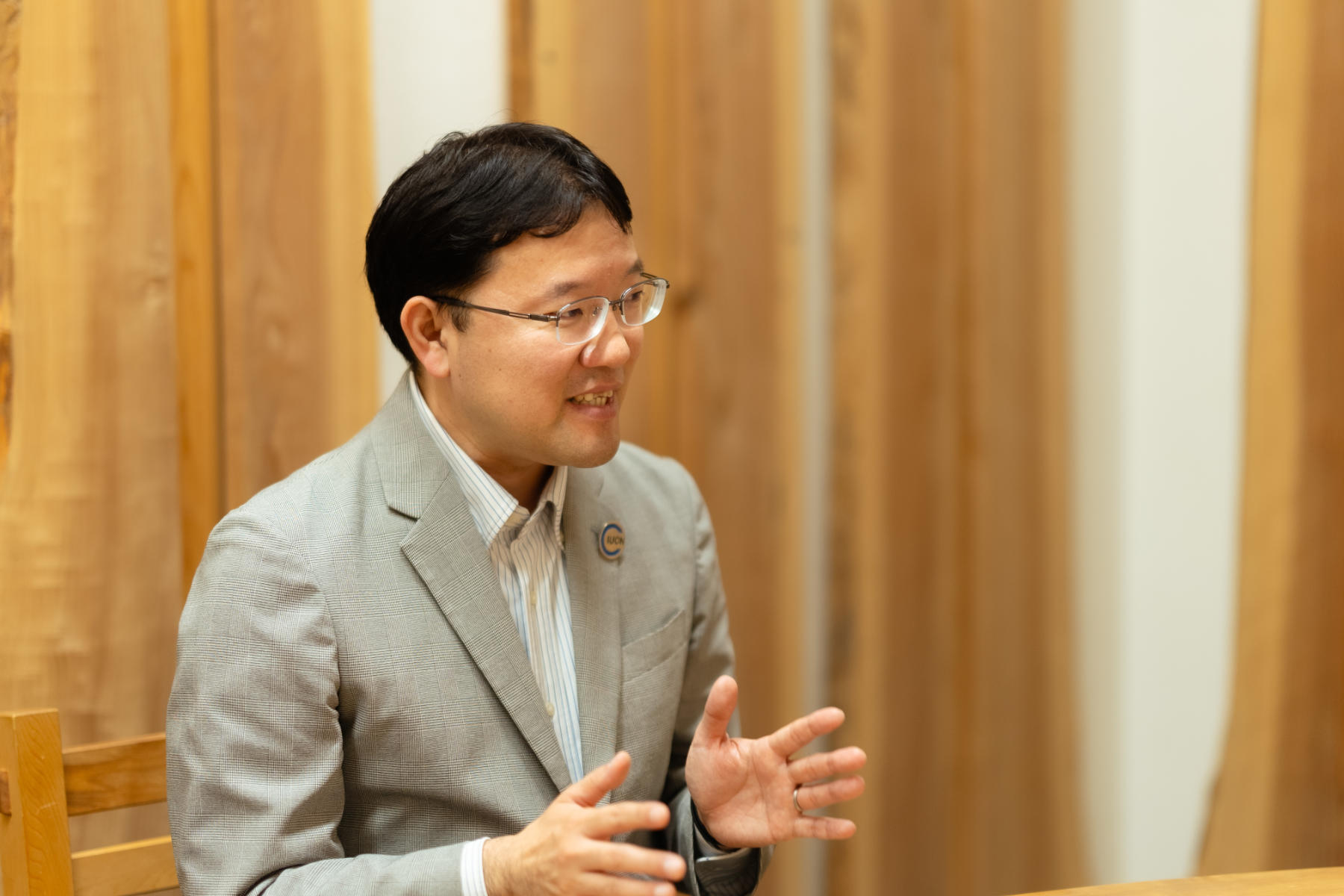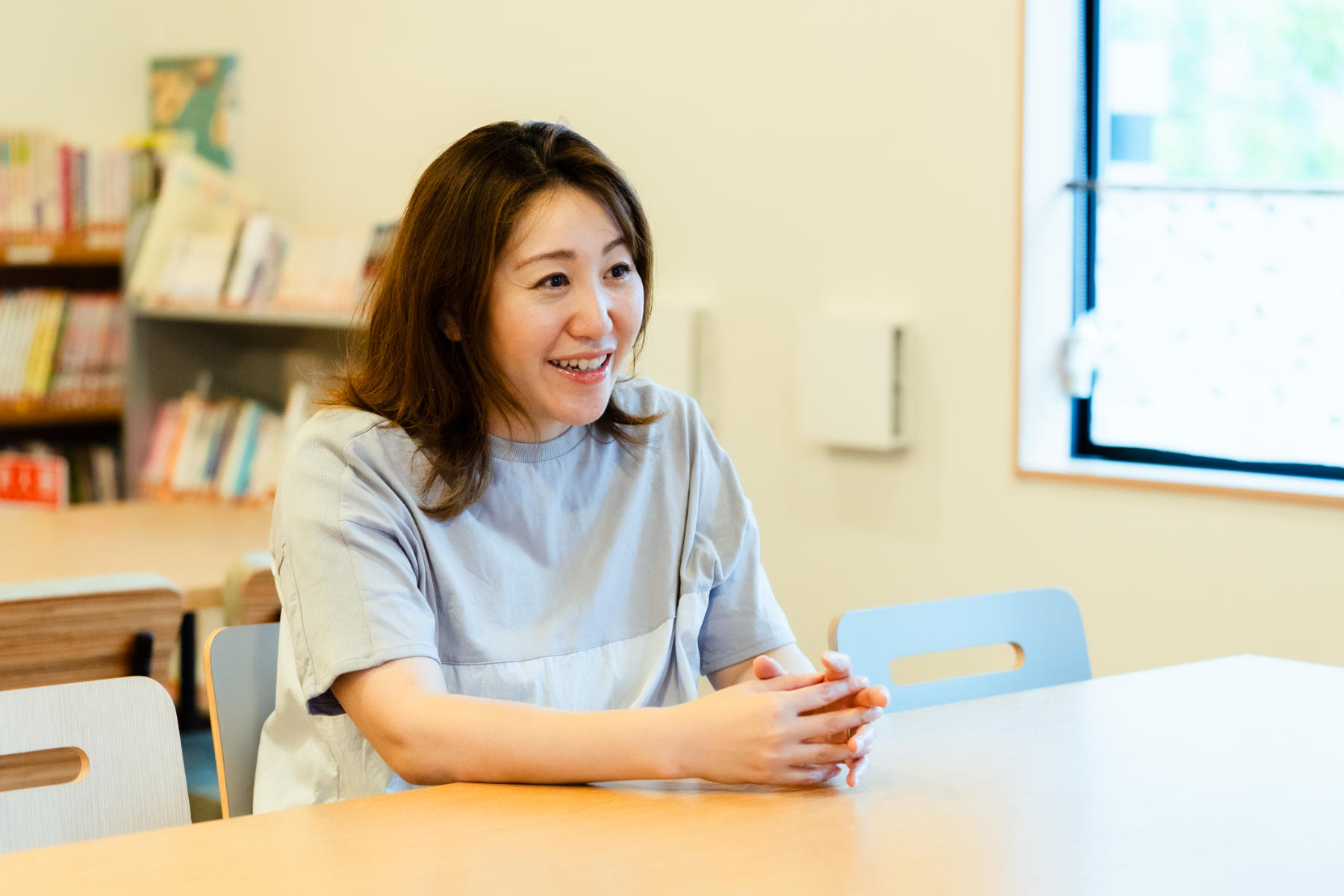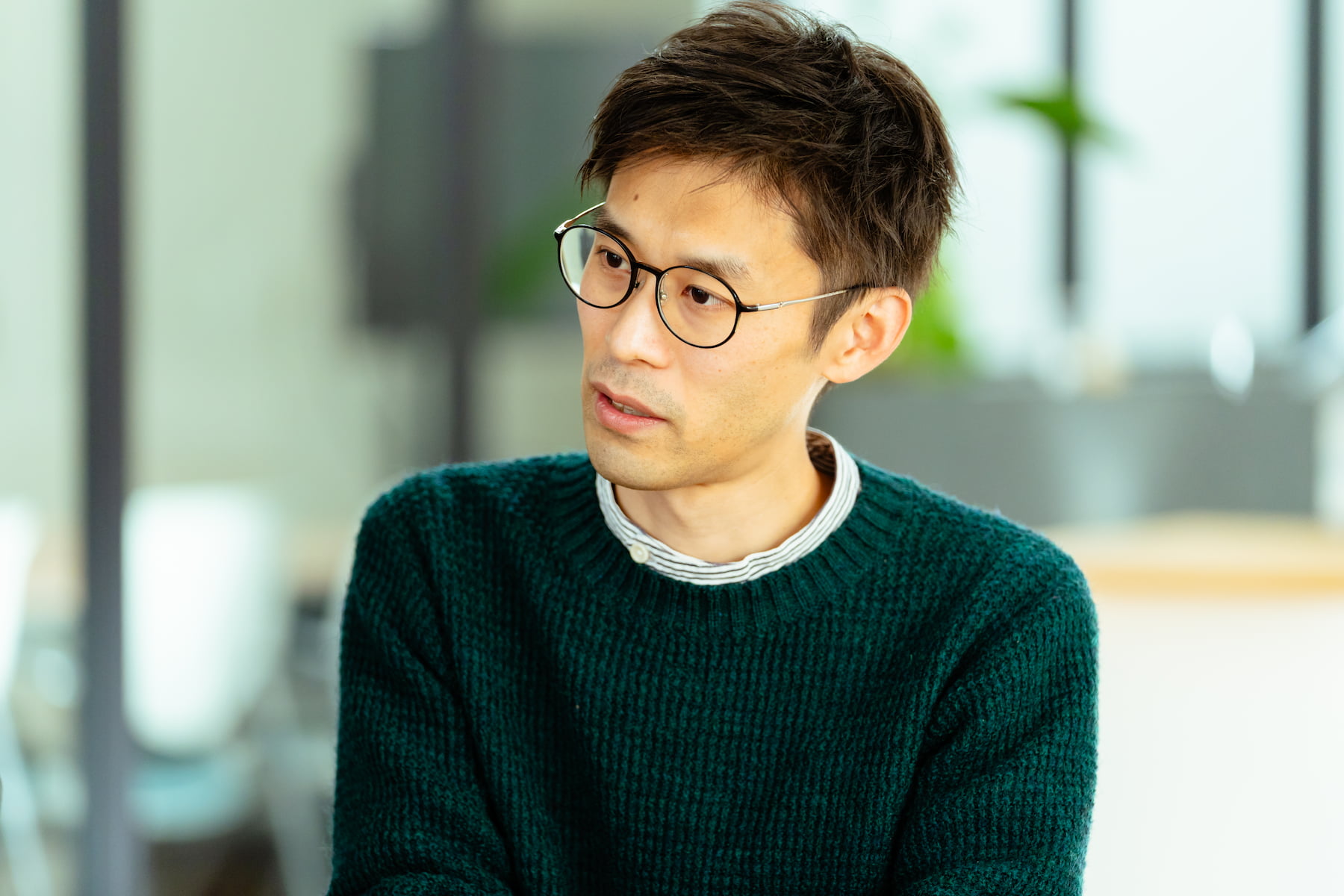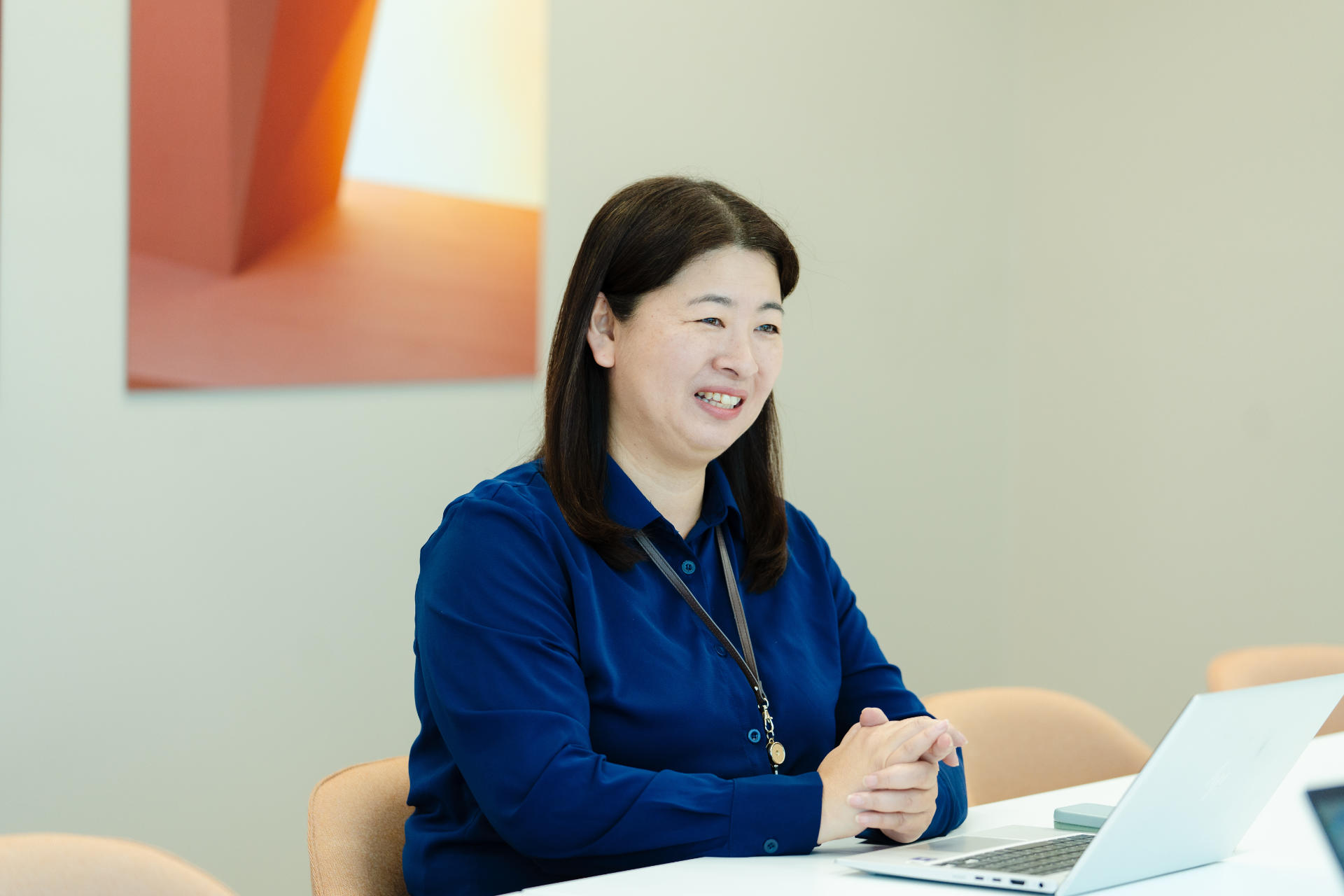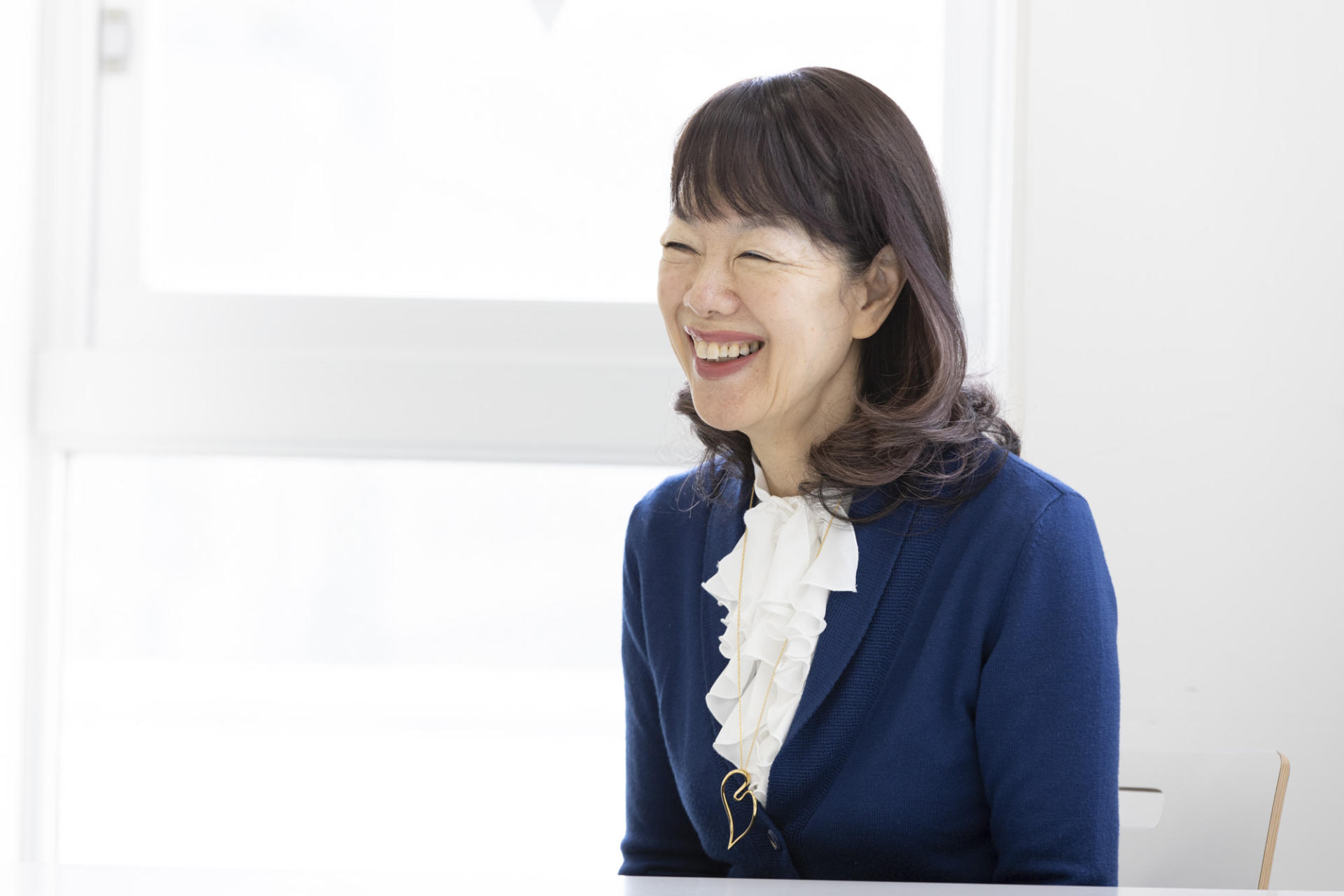CASE 34
The Asahi Glass Foundation
(Jul 1, 2019 – present)
A high awareness of environmental issues allowed you to provide multifaceted support.
For over half a century, the Asahi Glass Foundation has been working towards a society in which people enjoy true prosperity. In addition to providing research grants and scholarships to exceptional individuals, it established the Blue Planet Prize to honor significant contributions towards solving global environmental issues. When attempting to promote the award, an advertising agency put the Asahi Glass Foundation in touch with Hitoshizuku, who have since offered assistance in a variety of ways. This includes social media activity, interview articles with prizewinners, and surveys on awareness of environmental issues. We asked for their thoughts about the collaboration, and their plans for the future.
Your support diversified over the years to include media communication and content creation.
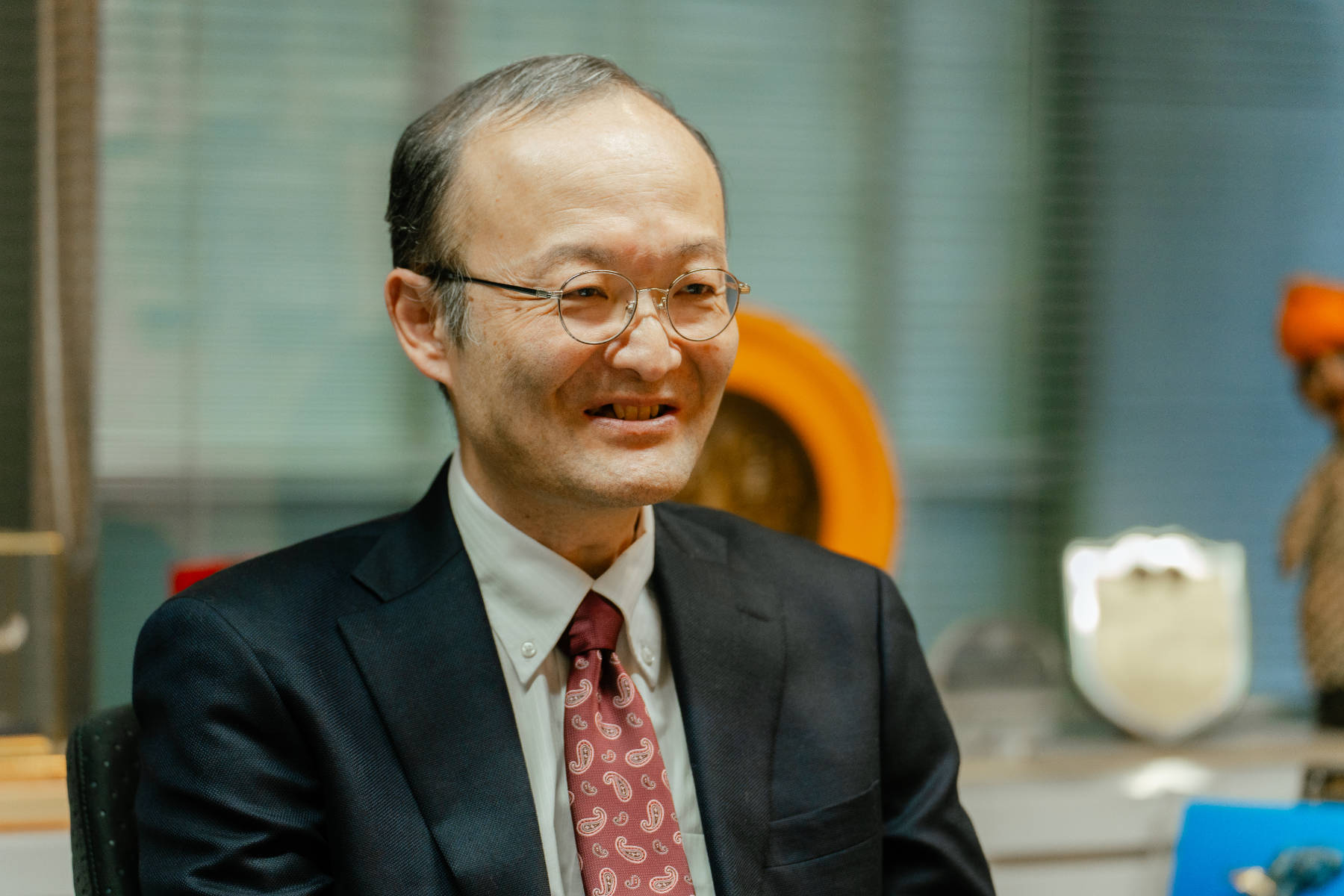
Toshihiro Tanuma, PhD, Director, “Blue Planet Prize” Commendation Department, The Asahi Glass Foundation
Mami Kaneko, Hitoshizuku (Kaneko):
We’ve been supporting the Asahi Glass Foundation for nearly five years. What challenges were you facing when you first contacted us?
Toshihiro Tanuma, the Asahi Glass Foundation (Tanuma):
In 1992, we established the Blue Planet Prize, an international award for individuals and organizations that have made a significant contribution towards solving global environmental issues, in the fields of science and technology. And in 2019, after nearly 30 years, we began a concerted effort to raise awareness of the prize. Social media was in widespread use, and we wanted to utilize that platform. But in order to do so, we needed to regularly post professional content. And that would have been too time-consuming to do on our own, so we decided to ask for outside assistance.
Kaneko:
You took the problem to an advertising agency you’d dealt with before. And I hear that they recommended us as PR specialists with an awareness of environmental issues. Thank you very much for contacting us.
By the way, did something in particular make you feel that there was a lack of awareness about the award?
Tanuma:
Surveys conducted among attendees of lectures by Blue Planet Prize laureates, as well as the survey on the awareness of environmental issues among the general public, showed that 80-90% of respondents answered “no” to the question “Have you heard of the Blue Planet Prize?”. Significant promotion was required to attract attendees to the lectures, highlighting the need to raise public awareness of the Prize.
Kaneko:
After you reached out to us, we started by creating content for the general public on Facebook and X (formerly Twitter). We made articles about the Blue Planet Prize, and other environment-related topics.
Later, we built a website introducing prizewinners that couldn’t come to Japan during the COVID-19 pandemic. We sent out press releases about prizewinners. And we consulted with advertising agencies to improve that content. Another of our proposals was the creation of “af Magazine,” which features interviews with prizewinners and researchers supported by the foundation. We’ve continued that work ever since.
Tanuma:
At first we mainly asked for support with our social media activities, but as our collaboration continued, it diversified.
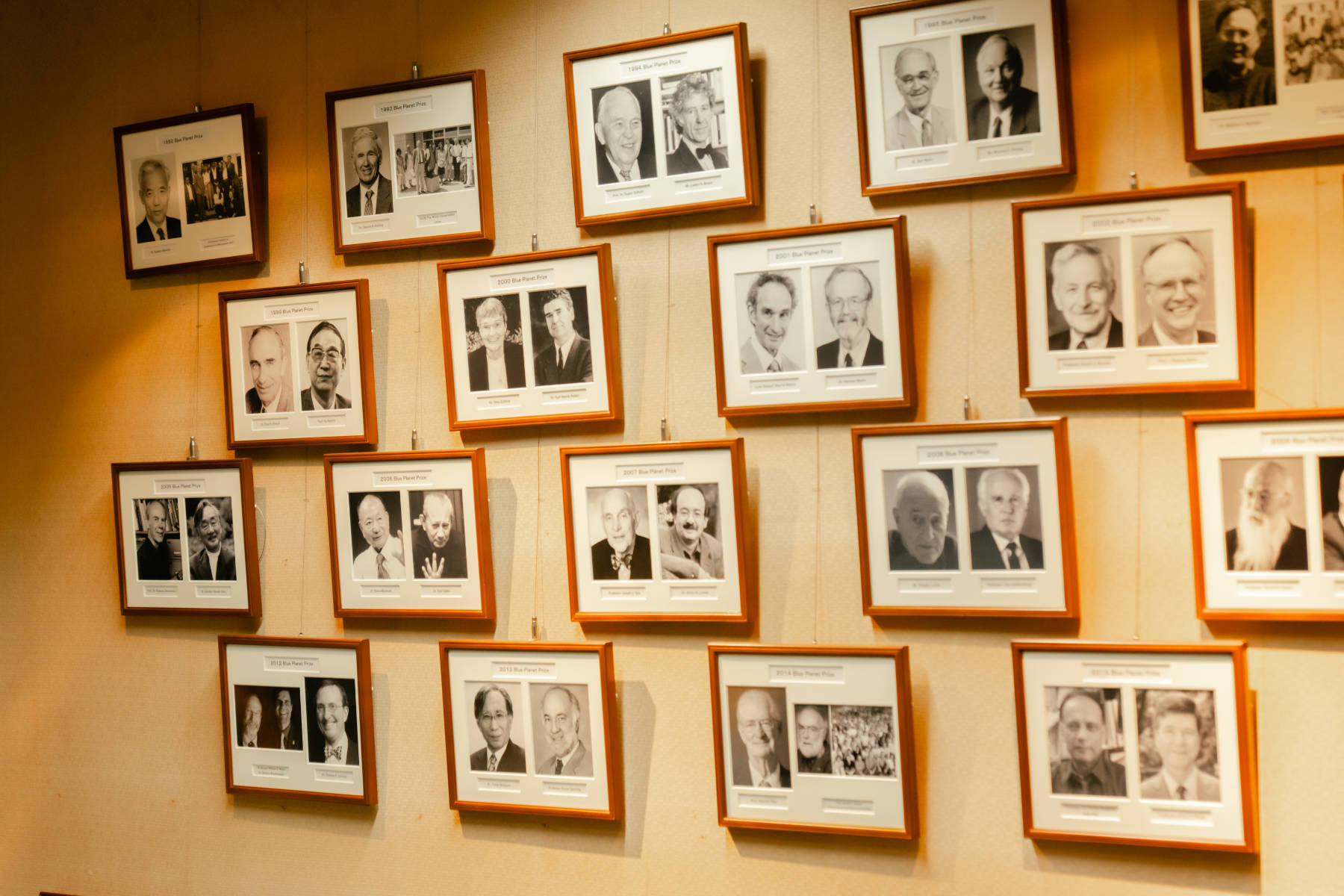
Photographs of Blue Planet Prize winners in the Asahi Glass Foundation’s office
A high awareness of environmental issues allowed you to effectively communicate information to the general public.
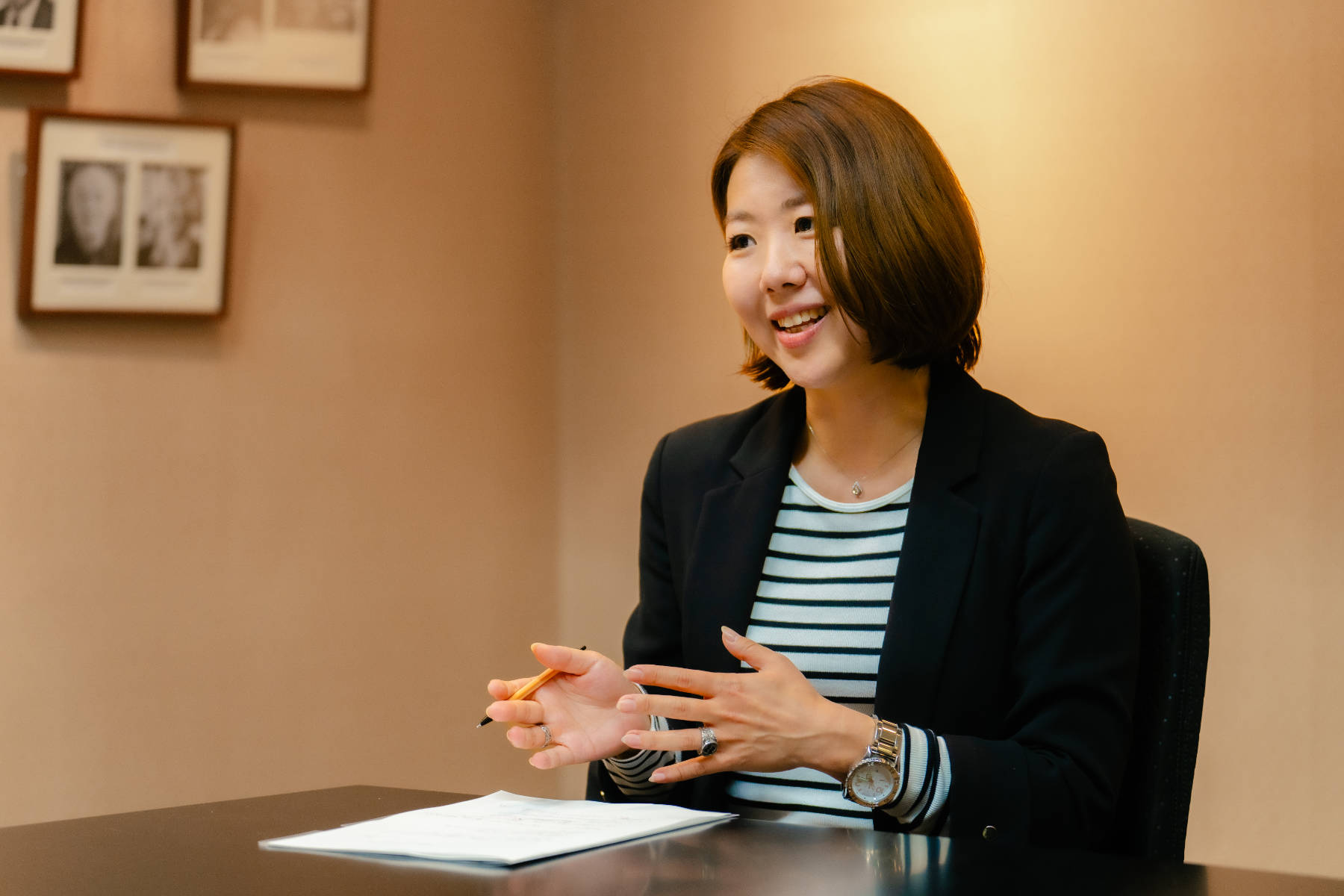
It’s great to see the results being used in such diverse ways.
Kaneko:
What were the positives and negatives of working with Hitoshizuku on various activities and processes?
Tanuma:
It was obvious that you were pros at making social media content. There was a lot of specialist information, but you researched and wrote about it independently.
And I was impressed by how quickly you were able to produce articles summarizing the lectures given by Blue Planet Prize winners.
Kaneko:
We spoke to them before the lectures, which gave us a better understanding. That seemed necessary for such specialized knowledge, so thank you for agreeing to set it up.
Tanuma:
You had a good grasp of the details. Conducting research and interviews in advance seemed to make everything go smoothly.
The new publication, “af Magazine,” is also very well received. Viewing figures go up whenever an article with a prizewinner is published.
But when producing content for social media, we ended up having to check the articles for inaccuracies. When you wrote about past prizewinners, we had to look up their past results and publications, and make sure everything was consistent. We couldn’t simply request an article, and put it online.
We were publishing over once a week to services like Facebook and X (formerly Twitter), so as soon as we finished an article, we had to start working on another one. It was a tough schedule, so putting you in change of planning and producing the posts really lightened our load.
Kaneko:
Thank you very much. We also proposed and carried out surveys on the awareness of environmental issues among the general public. The aim was to generate interest in the “Environmental Doomsday Clock,” which shows experts’ current sense of crisis regarding the environment. What was the response to that?
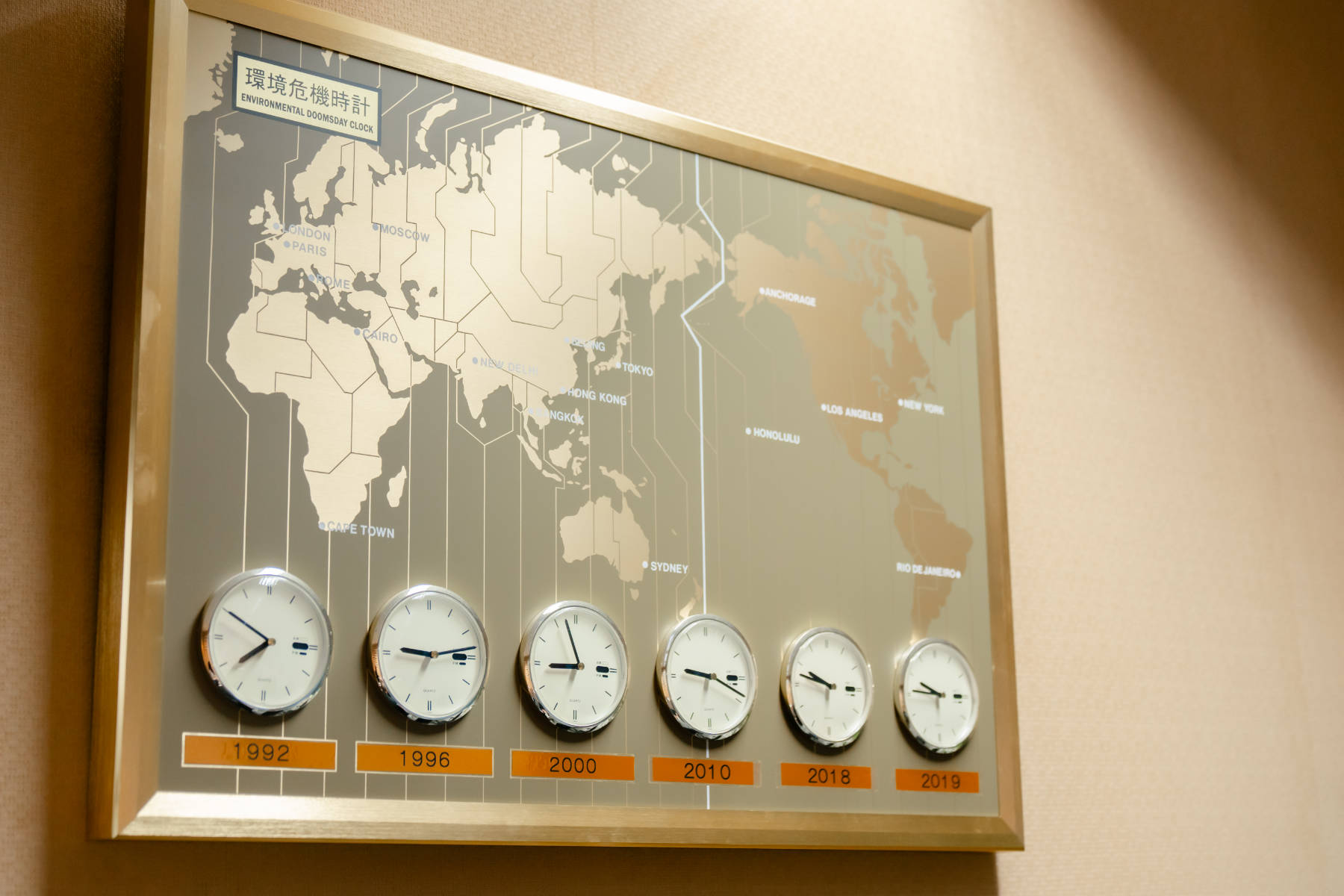
The Environmental Doomsday Clock shows experts’ current sense of crisis regarding the environment and the survival of humankind.
Tanuma:
Since 1992, a global survey has been carried out among experts in environmental issues. You proposed running a similar survey for the general public, and proactively suggested potential questions.
When we announced the results, we got a lot more enquiries than usual, which showed how much interest there was in the project.
Kaneko:
What were people enquiring about?
Tanuma:
University teachers wanted to know a bit more about the survey results, so they could use that information in their lectures. And the media wanted to know more so they could write articles.
Kaneko:
I’m glad that universities are interested, as well as the media.
Tanuma:
Some of the questions that generated a big response were those you suggested. For example, after a charge was introduced for plastic bags, we asked, “Since the charge was introduced, has there been a change in your awareness and behavior regarding environmental issues?” And after the COVID-19 outbreak, we asked a similar question. Well-timed questions like that generated a lot of interest.
Kaneko:
At the Asahi World Forum, an international symposium for considering global and social sustainability, the survey was introduced as a topic of discussion. It’s great to see the results being used in such diverse ways.
Tanuma:
You also helped us run a press conference for Blue Planet Prize winners. Happily, more reporters attended than we expected. The prizewinner commented on it too, and even took photos from the stage. I’m glad they were so satisfied.
Also, you showed great attention to detail by suggesting that we supply water in paper bottles, rather than plastic bottles.
Kaneko:
The prizewinner’s research was about marine plastic, so we wanted to make a green choice. Thank you for being so open to that idea. I think it showed the Asahi Glass Foundation’s desire to support those tackling environmental issues.
We want to support the younger generations in tackling environmental issues, and help society move in a more positive direction.
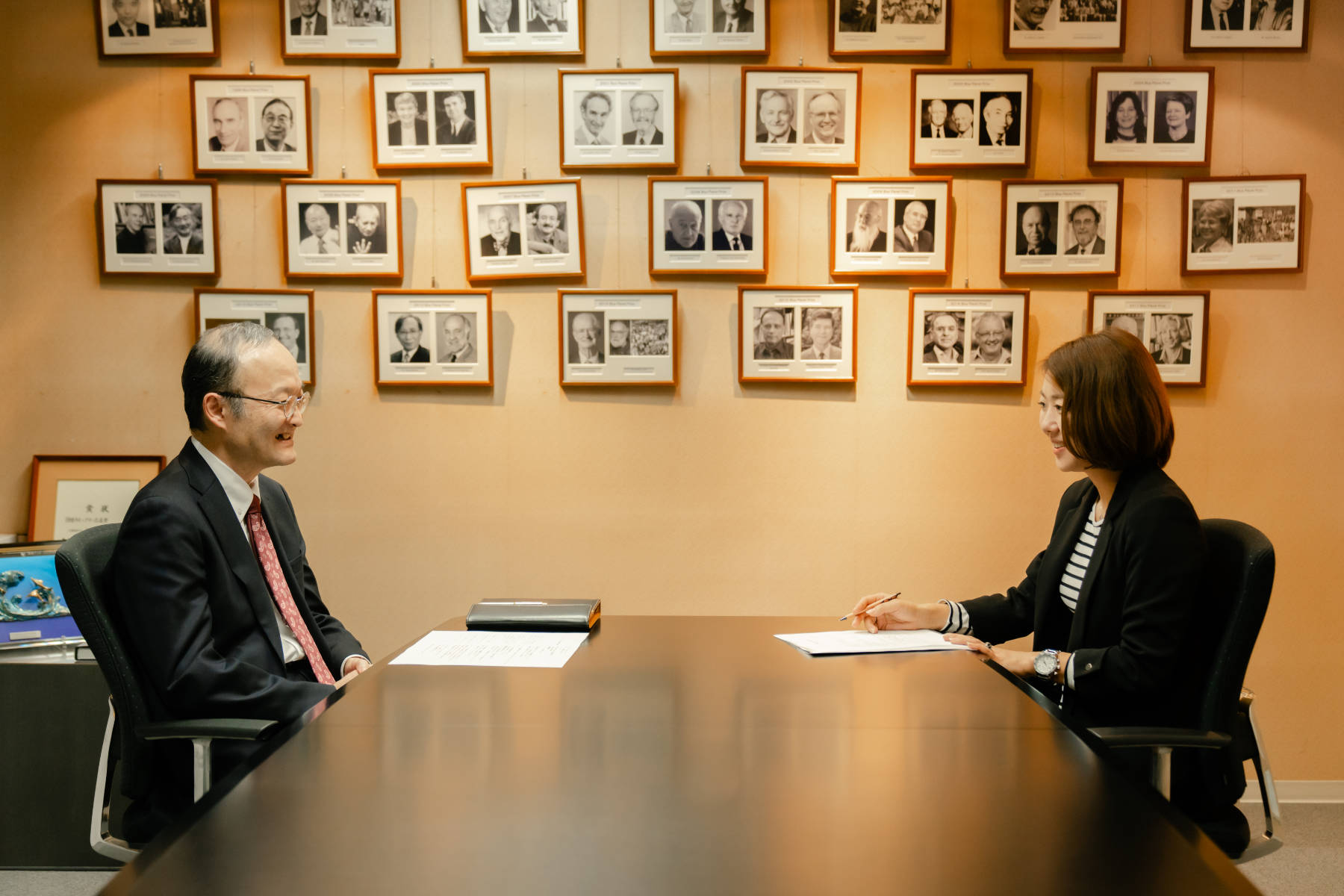
Kaneko:
Thanks for mentioning so many positives. But was there anything you think we should improve?
Tanuma:
I think there’s room to improve our social media content and strategy further, to get even more engagement.
Kaneko:
True. It’s important to consider the length and content. I want to continue discussing those points, while making sure to preserve your brand identity.
Tanuma:
Also, here’s an improvement that both of us can make. The Blue Planet Prize is an international award, so we post to social media in English too. But it’s not ideal when the content is solely related to Japan. So in the future, I’d like you to help us produce articles with a more universal, global perspective.
Kaneko:
Thanks for being so frank. We can collaborate with an advertising agency to solve that problem.
What else would you like to work on in the future?
Tanuma:
Firstly, I’d like to increase our number of social media followers. It would be great to post content that inspires people to take a deeper interest in environmental issues, and in the Blue Planet Prize.
I’d also like to work on environmental education for children and young adults. We could hold online seminars, for example.
Kaneko:
Is that to increase the number of researchers, and other people tackling green issues?
Tanuma:
Yes, I’d love for that to happen. But it’s not the only goal. Without an awareness of the issues, and of public opinion, we can’t affect global trends. I hope to inspire widespread change, and move Japan as a whole in a positive direction regarding environmental problems.
Kaneko:
Raising awareness of the Blue Planet Prize contributes to that goal too, doesn’t it?
Tanuma:
It does. Highlighting environmental problems is one of the original ideas behind the prize.
In the future, we want to target people of the same generation as you and your colleagues. So we hope you’ll use your understanding to propose relevant content.
Kaneko:
You started working with us in 2019, just a few years after we started out. I heard you wanted to support a young agency tackling environmental and social issues. We’re very grateful for those words, and for all the support you’ve given us so far.
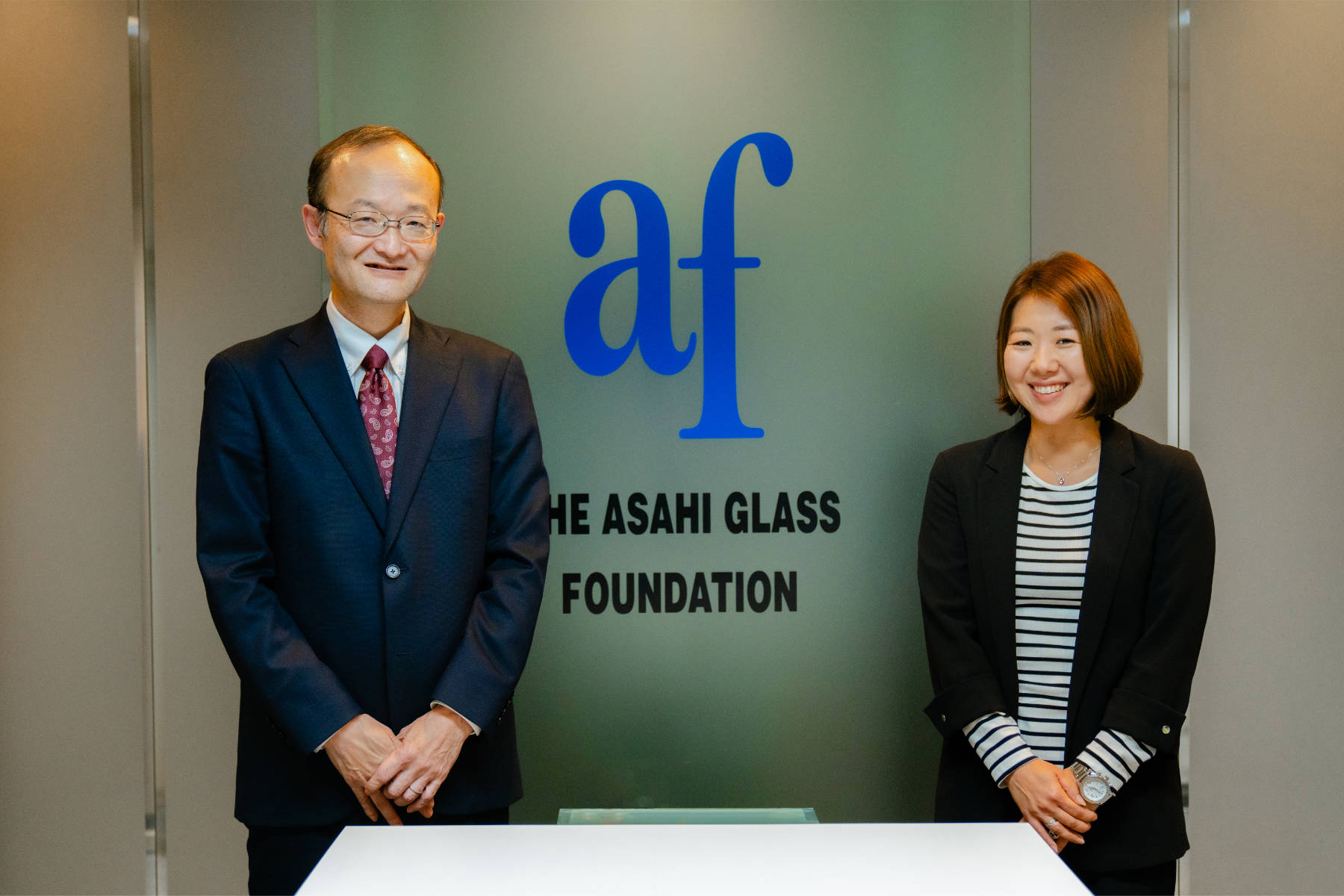
Photography: Hiroyuki Horigome
Editing: Mayuki Tsujihara
Translation editing: Satomi Furukawa
RECENT WORKS
| Name | Hitoshizuku Inc. |
| Address | 33 Nihonodori Naka-ku Yokohama Kanagawa 231-0021 JAPAN |
| Branch | Hamacho Odawara Kanagawa 250-0004 JAPAN |
| Phone | 81 045 900 8611 |
| info@hitoshizuku.co.jp |
| President | Hiroshi Kokubo |
| Established | March 2016 |
| Capital | 3,000,000yen |
| Business | Advertising & Public Relations Agency Planning & Produciton of Social Good Projects |
| Lawyer | Junna Tei / Yokohama First Law Office |
| Tax Advisor | Satoru Motokoide / Uniques Money Advisory |
| Labor and Social Security Attorney Office Work Innovation | |

